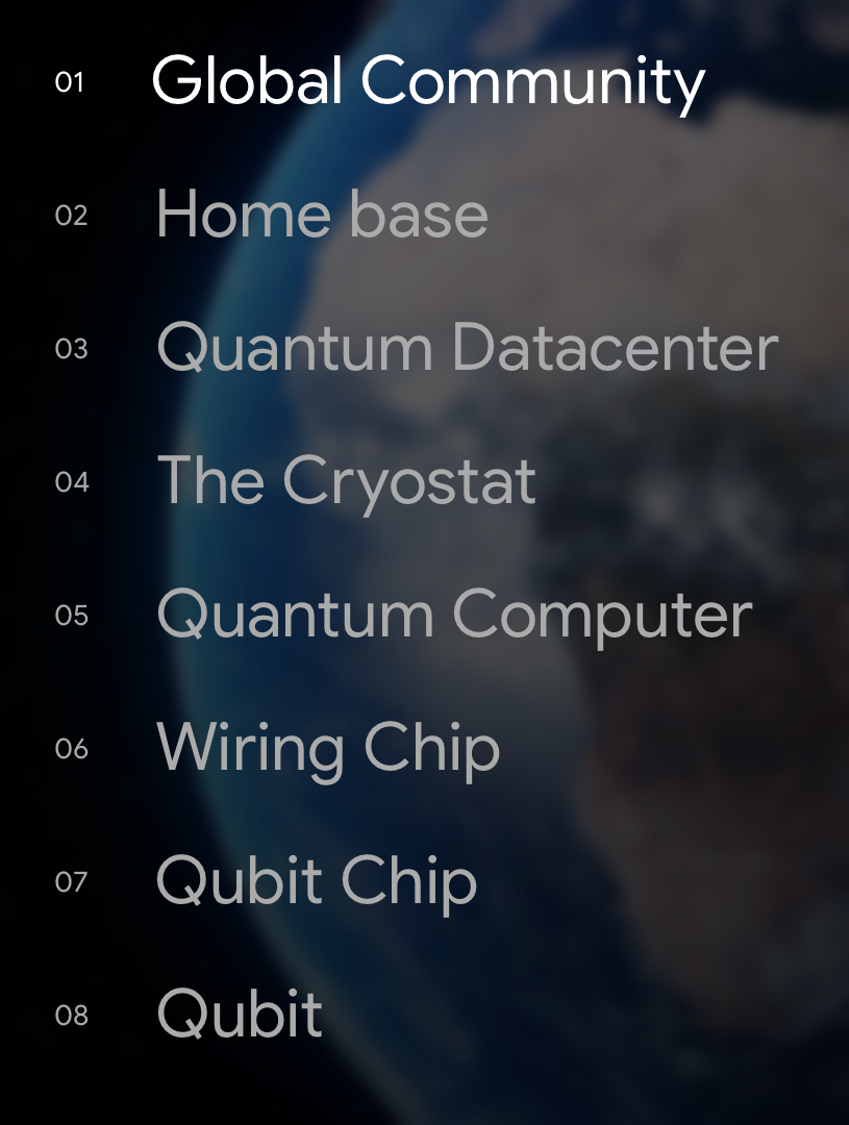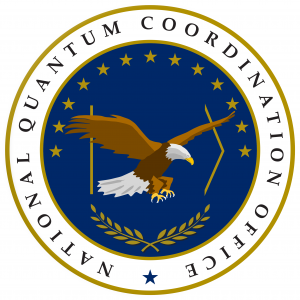Do you think more universities should be actively introducing quantum computing into their curricula? Maybe even on a high school level? Do you think we should do more in terms of education educating the future workforce in that regard? Of course, I mean there is much more to do. It's also an exciting topic to learn about and it will have quite some impact in the future. So you are
better prepared for it. This means there are also different dimensions of course. At the universities, for example, and in research there is a really dramatic increase in using quantum computers and working on algorithms and so if you look around whether it's in Europe or U.S. and everywhere, the universities expand their programs in quantum computing, in the theory, and also using quantum computers there are extracurricular made for as I mentioned before not that only physicists learn about quantum computers but that also quantum computers how to program them how to use them is taught to engineers and chemists and even finance experts etc. So it's really broadening. This is what we see. We also develop actually quite a lot of
tools and also programs where we help to bring together and to explain quantum computing, help people using quantum computers, show them how to program them you, can see for example YouTube videos where you can dive into detail and how to do it and also in collaboration with universities.
So that's the university level. Then if you go to that company level, it's again also in the end you want to also educate your workforce in quantum computing, you want to build up a team of experts that they can identify the use cases, and can also lay out a strategy for for making use and of the quantum advantage and integrating it. In the high school it's an interesting topic also because I personally think the earlier you kind of get in touch with this weird phenomena, the easier it may be for you to grasp it and to think like it right Zahra Ashktorab also said you think too classically. I think the earlier we start to to see and visualize and experience quantum behavior, then the more an intuition we can get and having an intuition also helps to then actually become creative in that space. So I think learning early the way how to do it is of course different than how you do it after you may have studied a certain subject. But I think there are cool things I mean for example a colleague here he looks into quantum games. So using the quantum physics and exploring how to use quantum computers in games and that's also one way to kind of get in touch with it and be excited about it and then
you know about it.
An Introduction to Quantum Computing
"We are analog beings living in a digital world, facing a quantum future."
-- Neil Turok
Quantum Computing
The future of quantum computing is incredibly exciting. With its potential for near-instantaneous computation and processing power, quantum computing could revolutionize the way we interact with data and could have a major impact on virtually every industry. Quantum computers are already being used in chemistry, material science, pharmaceuticals, robotics and finance. In the coming years, they are expected to become even more widely used as the hardware and software advances. The possible applications for quantum computing seem almost limitless – from solving complex problems to predicting weather more accurately than ever before.
Are You Ready for the Quantum Leap? https://iveybusinessjournal.com/are-you-ready-for-the-quantum-leap/
Ask an MIT Professor: Dr. Will Oliver Discusses the Past, Present, and Future of Quantum Computing: https://curve.mit.edu/mit-professor-will-oliver-past-present-future-quantum-computing
Quantum Computers
Explained With Quantum Physics
"Quantum computers aren’t the next generation of supercomputers—they’re something else entirely. Before we can even begin to talk about their potential applications, we need to understand the fundamental physics that drives the theory of quantum computing."
- After a Quantum Clobbering, One Approach Survives Unscathed:
https://www.quantamagazine.org/after-a-classical-clobbering-a-quantum-advantage-remains-20221207/
Quantum Computers Explained With Quantum Physics (9:58)
Learn Early
Do you think more universities should be actively introducing quantum computing into their curricula? Do you think we should do more in terms of education educating the future workforce in that regard?
It's also an exciting topic to learn about and it will have quite some impact in the future. At the universities and in research there is a really dramatic increase in using quantum computers and working on algorithms and so if you look around, the universities expand their programs in quantum computing.
Not only learn about quantum computers but also how to program them, how to use them. You can see YouTube videos where you can dive into detail and how to do it. So that's the university level.
If you go to that company level, you want to educate your workforce in quantum computing, you want to build up a team of experts that they can identify the use cases, and can also lay out a strategy for for making use and of the quantum advantage and integrating it.
The earlier you get in touch with this weird phenomena, the easier it will be for you to grasp it and to think like Zahra Ashktorab said, "you think too classically". I think the earlier we start to to see and visualize and experience quantum behavior, then the more an intuition we can get and having an intuition also helps to then actually become creative in that space.
- Thinking Too Classically: Research Topics in Human-Quantum Computer Interaction, April 2019, ZahraAshktorab,, JustinWeisz, and Maryam. Ashoori
- How to build a quantum computing workforce, November 9, 2020, Accenture Research
Learn Early
An Introduction to Quantum Computing
IBM's Dr. Talia Gershon (Senior Manager, Quantum Research) explains quantum computing to 5 different people; a child, teen, a college student, a grad student and a professional.
Google's Marissa Giustina addresses some basic questions about quantum computing. You’ll learn about what makes a quantum computer “quantum”, and what differentiates it from a regular computer. In addition, you’ll get to see what Google’s current quantum processors look like, and see the stack of hardware infrastructure needed to run the full system.
Terminology
- Bloch Sphere: a geometrical representation of a qubit

- Qubit: the quantum version of the classic binary bit
- Qubit Bias: degree to which a variable tends to a particular outcome
- Qubit Coupling Strength: degree to which two variables agree
- Superposition: any two quantum states that can be added together ("superposed") and the result will be another valid quantum state
- Hadamard Gate:
- CNOT Gate:
- Entanglement:
- Bell State:
- Ising Model:
- QAOA: Quantum Approximate Optimization Algorithm
- QUBO: Quadratic Unconstrained Binary Optimization
- Minimum Vertex Cover
- NISQ: Noisy Intermediate-Scale Quantum
- NP (Nondeterministic Polynomial Time)
- Adiabatic quantum computation:
- Quantum Annealing:
- Quantum Anomaly:
- Quantum Entanglement:
- Quantum Information Science:
- Quantum Supremacy:
- Quantum Technology:
- Quantum Tunnelling:
- Quantum Void (aka Quantum Vacuum State)
- Quantum Volume:
The two main approaches to building quantum computers are quantum annealing (QA) and gate model (GM).
An Introduction to Quantum Computing (19:27)
An Introduction to Quantum Computing (28:43)
What is a Quantum Computer (10:54)
Introduction to Quantum Computing (29:56)
National Quantum Initiative
Welcome to quantum.gov! the home of the National Quantum Initiative and ongoing activities to explore and promote Quantum Information Science.
U.S. Senate Passes Quantum Computing Cybersecurity Act: https://www.quantumbusinessnews.com/applications/u-s-senate-passes-quantum-computing-cybersecurity-act


